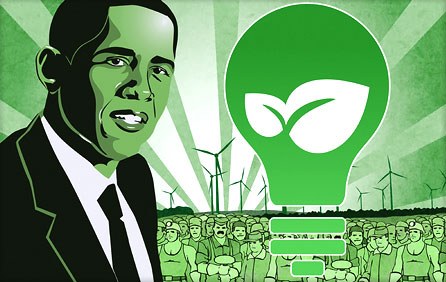
The environment: Finally?
Is it real that the Obama administration is finally getting serious about the environment, especially the critical issue of climate change?

That’s the buzz in Washington, raising the hopes of environmentalists and enraging shills for coal and other pollutants in Congress and the business sector.
It would be a welcome change, long overdue. For almost two decades the United States has not only dragged its own feet on global warming. It has been aggressively proactive in trying to prevent the international community from taking effective action.
That was supposed to change after 2009 when Barack Obama replaced the oil man who occupied the White House for eight years and with the departure of Vice president Dick Cheney, the most powerful friend the energy industry ever had in Washington.
Alas, Obama’s first term was a disappointment to all those who care about the fate of the Earth and of the future generations of people and other living things that will suffer the consequences of our fecklessness.
There are myriad indicators of Obama’s failure to deliver on the environment during his four-plus years in power. In April 2012, the president told Rolling Stone he would make climate change a campaign issue. He didn’t. Top officials like Agriculture Secretary Tom Vilsack evaded questions about the relation between climate change and the Farm Belt drought, the worst in fifty years. Indeed, the drought was so bad that 1,000 counties, about a third of the counties in the country, were declared disaster areas as a result.
But the president remained silent, or worse. In August 2012, amid another heat wave, The Nation Magazine thus assessed Obama’s record:
“Actually, Obama has been worse than silent. Instead of championing – and fighting for – an ambitious program for a green economic revival, he has buckled to pressure from a fossil fuel industry that dismisses any attempt to protect the environment as a “job-killer.” The president has gone out of his way to promote increased drilling for oil and natural gas, including in the Arctic – which, ironically, is more accessible now because of the global warming caused by burning fossil fuels.
Shell oil wants to begin exploratory drilling in the region in August, despite the Arctic’s extreme weather and remote location, which would make containing an oil spill extremely difficult, as Coast Guard Commander Robert Papp has told Congress.
Does no one in the Obama administration remember that it was just such an exploratory rig in the Gulf of Mexico that caused the worst environmental disaster in our nation’s history?”
How far did the first Obama administration go in coddling the fossil fuels sector? In this regard, what Ross Eisenberg, vice president for energy and resources policy for the National Association of Manufacturers recently told the Washington Post is priceless: His organization, he said, “really enjoyed our relationship” with Bill Daley, Obama’s former Chief of Staff. No wonder: Daley “played a key role in Obama’s decision to delay a 2011 ozone rule that would have reduced smog but raised costs for businesses across the country.” What is a few hundred thousand children suffering from asthma and thousands of deaths among people of all ages because of smog next to higher costs for polluters.
Now, according to numerous media reports, there is a new sheriff in town, and he has given his brand-new deputies tough marching orders. Actually, it’s the same sheriff but with a new determination to fight for the environment and a whole different team.
Obama’s new agency heads have reportedly been given “entirely different guideposts for the second term as Obama deputized a new team of Cabinet members to enact a series of rules and policies aimed at tackling global warming.”
Should we say we have heard all this before or be hopeful? It’s a good sign that Rhode Island Senator Sheldon Whitehouse, co-founder the “Safe Climate Caucus” in Congress, says he has sensed “a sea change” since June when Obama announced a new climate plan.
With Obama no longer having to face the wrath of voters in key coal states or raise money from the business sector, there is a very good chance this time he will act more forcefully to protect the environment and combat climate change. But how forcefully remains to be seen.
Certainly, he will get no help from the Republican House of Representatives, which undoubtedly has more climate change deniers than any legislative body in the world. He has already faced pushback from at least one Senator in his own party who represents a coal state, West Virginia’s Joe Manchin III.
Manchin told the Washington Post that “you cannot see this any differently than as a war on coal, and not just in West Virginia or the U.S. but on a global scale… They’re using every tool they have to destroy the most abundant, reliable and affordable resource that we have.” Manchin conveniently neglected to say, also the biggest contributor to global warming.
So maybe the polluters lobby won’t enjoy their relationship with Obama’s people quite as much this time around. Still, skeptics like former Clinton Interior Secretary Bruce Babbitt, say the administration is too reluctant to use all the tools in its kit, especially an obscure law known as the Antiquities Act, which empowers the executive to declare an area a national monument and off-limits to mineral exploitation.
The next few months should tell if this time Obama will not only talk the talk but also walk the walk. Particularly telling will be the administration’s decision whether or not to approve the Keystone XL pipeline project, which would transport oil sands bitumen from Canada to the U.S. Gulf Coast.
Oil sands have wrought environmental havoc in large parts of Canada. The proposed pipeline across the United States is also fraught with environmental risks.
Should Obama say “no” to Keystone, we can hope this time he is for real. On the other hand, should he give the project the green light, it is game over.

